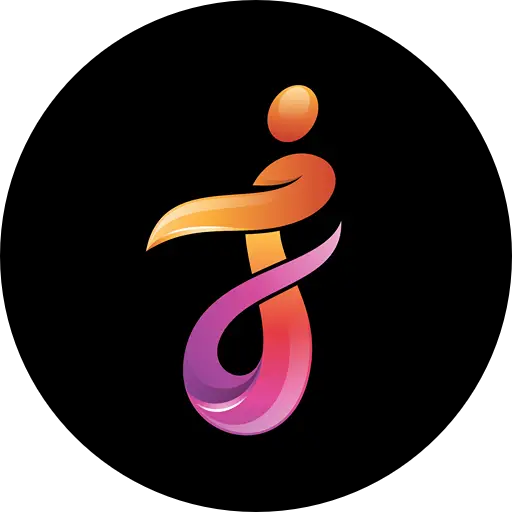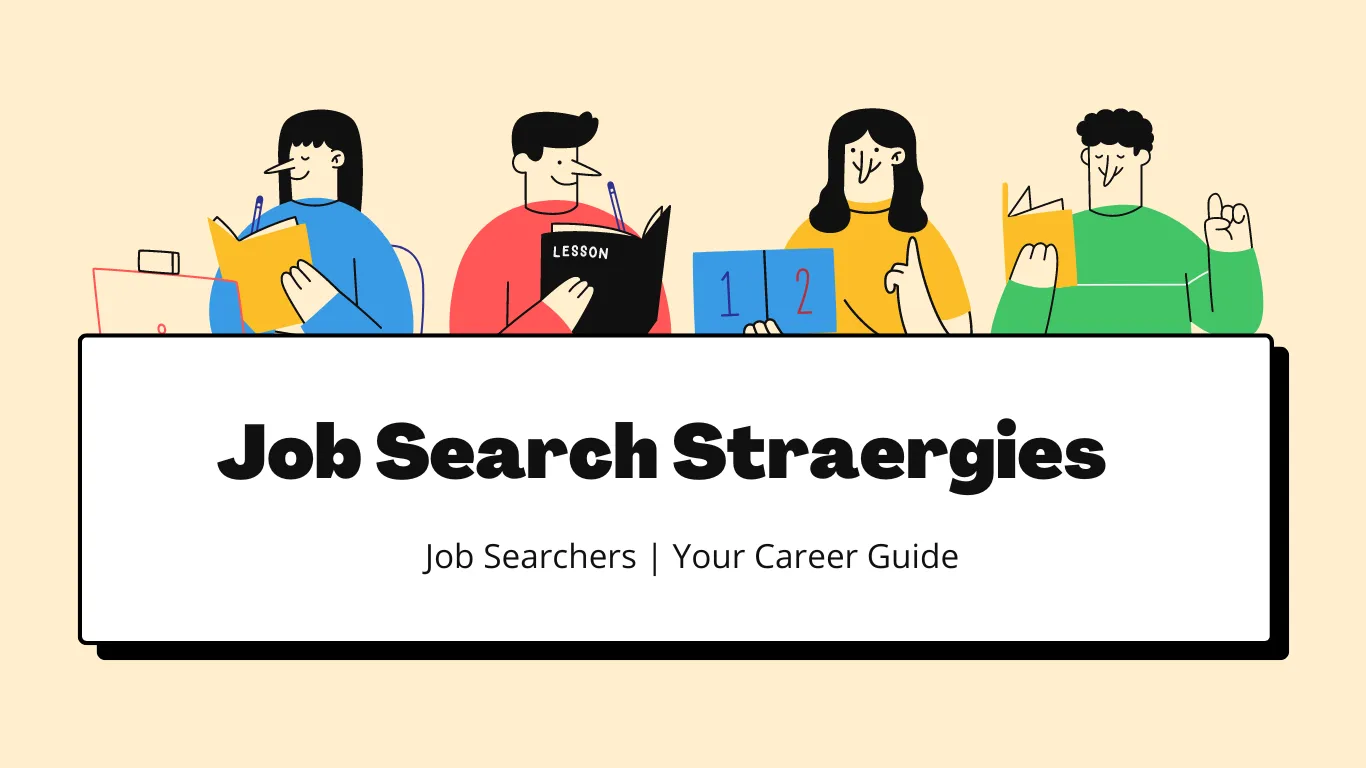Introduction to Top 10 Interview Questions
The landscape of job interviews is undergoing significant transformation in 2024, driven by technological advancements, the persistent influence of remote work, and a heightened focus on soft skills. These evolving trends are crucial for job seekers to comprehend, as they fundamentally reshape the way companies assess potential candidates.
Technological advancements have revolutionized the interview process. Video conferencing tools such as Zoom and Microsoft Teams have become standard mediums for conducting interviews, allowing companies to engage with candidates across the globe without geographical constraints. Moreover, artificial intelligence (AI) is playing an increasingly pivotal role. AI-driven platforms now assist in initial resume screenings, analyzing candidate responses to pre-interview questions, and even conducting preliminary video interviews. These tools enhance efficiency and help eliminate biases, ensuring a more equitable selection process.
The trend towards remote work, which gained prominence during the COVID-19 pandemic, continues to influence interview dynamics in 2024. Employers are not only seeking candidates who are adept at remote collaboration but are also using remote interviewing techniques to gauge a candidate’s ability to thrive in a virtual work environment. This shift necessitates that job seekers demonstrate their proficiency in digital communication, self-motivation, and time management during the interview process.
Additionally, there is an increasing emphasis on soft skills, reflecting a broader recognition of their significance in the workplace. Employers are prioritizing attributes such as emotional intelligence, adaptability, and problem-solving abilities. These skills are considered essential for fostering a positive work culture, enhancing team dynamics, and navigating the complexities of modern work settings. Consequently, candidates must be prepared to articulate their soft skills effectively, often through behavioral interview questions that probe past experiences and situational responses.
Understanding these current interview trends is crucial for job seekers aiming to make a lasting impression. By staying informed about the latest developments and tailoring their preparation accordingly, candidates can better position themselves to succeed in the competitive job market of 2024.
Question 1: Tell Me About Yourself
The question “Tell me about yourself” is nearly ubiquitous in interviews, particularly as an opening question. Employers ask this question to gain a broad understanding of a candidate’s background, assess their communication skills, and see how well they can present themselves. Interviewers are looking for a concise yet comprehensive narrative that touches upon your professional journey, showcases your skills, and aligns your experiences with the job role. Essentially, they want to discern how your background makes you a suitable fit for the position.
To craft a compelling response, focus on structuring your answer in a manner that is both engaging and informative. Start with a brief overview of your professional background, highlighting key roles and responsibilities that are relevant to the job. Next, discuss specific skills and achievements that underscore your suitability for the position. Finally, touch upon personal traits or interests that align with the company’s culture or values.
A strategic approach is to use the Present-Past-Future framework. Begin with your current role (Present), then provide a summary of past experiences (Past), and conclude with what you aim to achieve next (Future). This not only creates a logical flow but also demonstrates forward-thinking and ambition.
For example:
“I am currently a project manager at XYZ Corporation, where I oversee a team of ten and manage multiple projects simultaneously. Over the past five years, I’ve honed my skills in project planning, risk management, and team leadership. One of my notable achievements was leading a cross-functional team to deliver a critical project three months ahead of schedule, resulting in a 20% increase in client satisfaction. Prior to this, I worked as a senior analyst at ABC Company, where I developed my analytical and problem-solving skills. Moving forward, I am eager to bring my expertise in project management and team leadership to a dynamic company like yours, where I can contribute to innovative projects and drive organizational success.”
This structured approach allows you to present a well-rounded picture of yourself, making it easier for interviewers to see how your experiences and aspirations align with the job at hand.
Question 2: Why Do You Want to Work Here?
When preparing for an interview, understanding the employer’s mission, values, and culture is crucial to answering the question, “Why do you want to work here?” effectively. This question allows you to demonstrate your genuine interest in the company and how your career goals align with their objectives. A well-researched answer not only reflects your commitment but also shows that you have taken the time to understand what makes the organization unique.
To craft a compelling response, start by exploring the company’s website, recent news articles, and any available resources about their projects and initiatives. Look for key elements such as the company’s mission statement, core values, and notable achievements. This knowledge will help you connect your personal and professional aspirations with the company’s direction.
When structuring your answer, follow this framework:
- Introduction: Begin by expressing your enthusiasm for the opportunity to work at the company.
- Company Research: Highlight specific aspects of the company that resonate with you, such as their innovative projects, community involvement, or industry leadership.
- Personal Alignment: Discuss how your skills, experiences, and career objectives align with the company’s goals and values.
- Future Contribution: Explain how you envision contributing to the company’s success and growth.
Here is a sample response:
“I am genuinely excited about the opportunity to work at Job Searchers Private Limited because of its commitment to innovation and sustainability. I have followed your recent projects, particularly your efforts in developing eco-friendly products, and I am impressed by your leadership in the industry. My background in environmental science and my passion for sustainable development align perfectly with ABC Corporation’s mission. I am eager to bring my skills in project management and research to your team, where I hope to contribute to furthering your environmental initiatives and driving impactful change.”
By thoroughly researching the company and aligning your career goals with their mission, you can provide a thoughtful and convincing answer to why you want to work there.
Question 3: What Are Your Strengths and Weaknesses?
Understanding how to effectively communicate your strengths and weaknesses during an interview is crucial. This question gives hiring managers insight into your self-awareness and honesty, as well as how you might fit into the team and handle challenges. When identifying your strengths, focus on qualities that are relevant to the job. For example, if you’re applying for a project management position, strengths like leadership, organization, and time management would be pertinent.
To present your strengths, use specific examples from your past experiences. Rather than simply stating you are a “good communicator,” you might say, “One of my strengths is communication. For instance, in my previous role, I led a team project that required constant updates to our client. My ability to clearly convey information ensured that the project stayed on track, and we delivered it two weeks ahead of schedule.”
When discussing your weaknesses, honesty is key, but it’s equally important to show how you are addressing them. Choose a genuine weakness and describe the steps you are taking to improve. For instance, you might say, “One area I’m working on is public speaking. I used to get very nervous presenting in front of large groups. To overcome this, I joined a local Toastmasters club and have been practicing regularly. This has significantly boosted my confidence and improved my presentation skills.”
Framing your weaknesses in this manner demonstrates your commitment to personal growth and your proactive approach to self-improvement. Avoid mentioning weaknesses that could be critical to the job you’re applying for, and instead, select areas that show your willingness to develop professionally.
In summary, effectively answering this question requires a balance of honesty and strategic presentation. By highlighting strengths relevant to the position and framing weaknesses as opportunities for growth, you can present yourself as a well-rounded and self-aware candidate.
Question 4: Describe a Challenge You Faced and How You Overcame It
Employers frequently ask candidates to describe a challenge they faced and how they overcame it to assess their problem-solving abilities and resilience. This question helps interviewers understand how you handle difficulties, adapt to new situations, and whether you possess the determination to overcome obstacles. To answer this question effectively, it’s recommended to use the STAR method, which stands for Situation, Task, Action, and Result. This structured approach ensures that your response is comprehensive and coherent.
First, describe the Situation by providing context about the challenge you encountered. Be specific and concise. Next, outline the Task that needed to be addressed. This involves explaining what the objective or responsibility was in that particular situation. Following this, discuss the Action you took to tackle the challenge. Highlight the steps you implemented, the skills you utilized, and any strategies you developed. Finally, articulate the Result of your actions. Emphasize the positive outcome, the lessons learned, and how it benefited the organization or project.
For example, suppose you faced a significant project deadline while managing a team. You could structure your response as follows:
Situation: “In my previous role as a project manager, our team was assigned a critical project with a tight deadline. Halfway through the project, a key team member left unexpectedly, putting our timeline at risk.”
Task: “My task was to ensure the project stayed on track despite the reduced workforce and maintain the quality of our deliverables.”
Action: “I immediately reassessed the project timeline and reallocated tasks among the remaining team members. I also recruited a temporary contractor to fill the gap and held daily briefings to ensure everyone was aligned and motivated.”
Result: “As a result, we completed the project on time and received positive feedback from the client for our adaptability and the quality of our work. This experience reinforced my ability to handle unexpected challenges and lead a team under pressure.”
This methodical approach not only demonstrates your problem-solving skills but also showcases your ability to handle adversity and produce tangible results.
Question 5: How Do You Handle Stress and Pressure?
The question “How do you handle stress and pressure?” is pivotal in understanding a candidate’s emotional intelligence and coping mechanisms. Employers seek individuals who can maintain composure, productivity, and efficiency under challenging conditions. Demonstrating your ability to manage stress effectively suggests that you can handle the demands of the job without compromising on performance or wellbeing.
Effective stress management involves a combination of strategies tailored to individual preferences and work environments. Common techniques include prioritizing tasks to focus on high-impact activities, breaking large projects into manageable steps, and employing time management tools to stay organized. Practicing mindfulness and regular physical activity can also significantly reduce stress levels, thereby enhancing overall productivity.
Moreover, maintaining open communication with colleagues and supervisors is crucial. Sharing concerns and seeking support can alleviate stress and foster a collaborative work culture. Building a strong support network within the workplace can provide emotional resilience and practical assistance when needed.
Here’s a sample response that illustrates effective stress management techniques:
“I believe that handling stress and pressure is an integral part of any job. When faced with stress, I prioritize my tasks, ensuring that urgent and high-impact activities are addressed first. I also break down larger projects into smaller, more manageable tasks, which makes them less overwhelming. To stay organized, I use time management tools such as calendars and to-do lists. Additionally, I practice mindfulness techniques like meditation and deep-breathing exercises to maintain my focus and calm. Regular physical activity, such as jogging, also helps me manage stress effectively. When necessary, I communicate openly with my team and supervisors to share my concerns and seek support. This holistic approach helps me stay productive and maintain a positive attitude, even under pressure.”
Question 6: Where Do You See Yourself in Five Years?
The question “Where do you see yourself in five years?” serves multiple purposes in the interview process. Primarily, it aims to gauge your career planning and ambition. Employers are interested in understanding whether you have a clear vision for your professional future and if that vision aligns with the company’s goals. By evaluating your response, they assess your long-term commitment and your potential for growth within the organization.
When answering this question, it is crucial to strike a balance between realism and aspiration. While it’s important to convey your ambitions, an overly ambitious answer might come off as unrealistic. Conversely, a lack of ambition can suggest that you’re not driven. Therefore, your response should reflect a thoughtful career progression that is both achievable and aspirational.
To demonstrate commitment to the company, tailor your answer to align with the organization’s values and long-term objectives. Research the company’s culture, mission, and recent achievements to ensure your career goals resonate with their direction. This approach not only shows that you have done your homework but also that you envision a future with the company.
Here is an illustrative answer to help you craft your own response:
“In five years, I see myself in a leadership role within this company, having contributed significantly to our team’s success and having grown both professionally and personally. I am particularly excited about the opportunity to work on innovative projects that drive growth and enhance our market position. My goal is to develop a deep understanding of our industry and leverage that knowledge to lead a team, fostering a collaborative environment that consistently delivers outstanding results. I am committed to continuous learning and plan to pursue relevant certifications that will enable me to contribute more effectively. Overall, I am eager to grow within this organization and make a meaningful impact.”
By following these guidelines and crafting a thoughtful response, you can effectively convey your career planning and ambition, demonstrating your commitment to the company’s long-term success.
Conclusion: Final Tips for Interview Success
As we wrap up our exploration of the top 10 interview questions and how to answer them in 2024, it’s crucial to highlight some key takeaways and offer additional guidance to ensure your interview success. Mastering these questions is only part of the equation; thorough preparation and the right mindset are equally important.
Firstly, practicing your answers cannot be overstated. Go beyond rehearsing your responses to the top 10 questions. Consider other potential questions and scenarios you might encounter. Practice with a friend or in front of a mirror to refine your delivery and gain confidence. This will help you communicate your thoughts clearly and concisely during the actual interview.
Secondly, researching the company is essential. Understand their mission, values, products, and recent developments. This knowledge will not only help you tailor your answers but also demonstrate your genuine interest in the company. Employers appreciate candidates who take the time to understand their business and can articulate how they can contribute to its success.
Thirdly, dressing appropriately for the interview is vital. Your attire should align with the company’s culture and the industry standards. A well-groomed and professional appearance shows respect for the opportunity and helps make a positive first impression. It’s better to err on the side of being slightly overdressed than underdressed.
Additionally, maintaining confidence and authenticity throughout the interview process is crucial. While it’s important to prepare, avoid sounding too rehearsed. Be yourself, and let your personality shine through. Employers are looking for candidates who are not only skilled but also a good fit for their team and culture.
Finally, remember that interviews are a two-way street. While the company evaluates your fit for the role, it’s also an opportunity for you to assess if the company aligns with your career goals and values. Approach the interview with a mindset of mutual discovery, and you will stand a better chance of finding a role that truly suits you.
By integrating these final tips with the strategies for answering the top 10 interview questions, you’ll be well-equipped to navigate the interview process with confidence and poise. Good luck!




